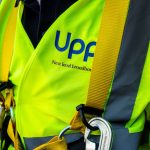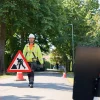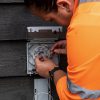Hull ISP KC Calls UK Broadband Speed Demand Study a Dangerous Red Herring

The Hull-based incumbent telecoms provider KC, which covers part of East Yorkshire in England, has advised the UK Government to ignore an “unambitious” new study by the Broadband Stakeholder Group after it suggested that a “median household” might only require bandwidth of 19Mbps (Megabits per second) by 2023.
The study itself (here) was intended to forecast future demand for broadband bandwidth in UK homes and proposed a number of different ways in which its model could be interpreted, which depended a lot upon how long you’d be prepared to wait for your content to complete its download or begin streaming without any buffering.
Advertisement
The research arguably attempted to reflect the reality of real-world consumption but KC’s Finance & Commercial Operations Director, Sean Royce, views it instead as a “red herring” that the Government could use “as its yard stick” to help lower the bar for their own superfast broadband targets (currently still defined as “greater than 24Mbps“) and thus cause the UK to “fall further behind other developed economies for infrastructure” (note: at present some studies actually show us rising above other developed economies).
Sean Royce, KCs Finance & Commercial Operations Director, told ISPreview.co.uk:
“19Mbps by 2023 is unambitious, and if the UK is to remain an economic power on the global stage we need the infrastructure in place to deliver this. There’s a big focus on rebalancing the UK’s books with greater exporting and trade, but if broadband speeds are neglected this will impact our service and creative industries and make it more difficult to compete. It is no coincidence that the strong economies in Asia all lead the way here and are rolling out fibre-to-the-premises faster than anywhere else in the world.
The second concern I have with the study is need versus desire. From our experience, there is a clear distinction between the broadband capacity that households need and the speed levels that consumers want. This isn’t simply about keeping up with the Jones’. It’s a recognition that across almost every aspect of our lives today – whether that’s how we stay in touch with family and friends, how we watch films, to where we work and how we collaborate on documents – we rely on the internet. That reliance is only going to increase and people will continue to want faster and faster broadband speeds for peace of mind.”
KC are of course currently in the process of deploying their own superfast fibre optic (FTTP/H and FTTC) based Lightstream broadband service, which should reach 30,000 homes and businesses in Hull by the end of 2013 and then 45,000 by March 2015 (here). Most of this deployment is being dominated by their 350Mbps capable true fibre optic (FTTP/H) network and that’s the reverse of BT’s approach where the slower ‘up to’ 80Mbps hybrid fibre FTTC solution is the most dominant (FTTC is still distance dependent so some lines deliver well below 24Mbps).
It is however worth pointing out that even the fastest fibre optic lines rarely come across Internet services that can make full use of their performance, which is reflected in various broadband speed studies from the likes of Ookla (Speedtest.net), Akamai and others. But never the less it is perhaps important to ensure that the infrastructure you deploy is able to keep pace with both the lowest and highest types of demand. A recent comment from Fluidata’s boss reflects this.
Piers Daniell, MD of Business ISP Fluidata, said:
“With 4K video offering four times the resolution of 1080p and talk of 8K on the horizon our appetite for high definition content will only grow, putting our efforts of on deploying antiquated technology into perspective. The problem is without looking far enough into the future we are only ever going to be playing catch-up, which is why so many new businesses have been able to start and raise private funding to deploy Fibre to the Home (FTTH) networks. Virgin obviously have their own network but without national coverage and its own limitations I feel unless we look forward to gigabit speeds and more we are never going to be able to meet this demand.
It reminds me of a time in the late nineties when PCs were always inadequate to run the demands of the software on it. Every day processor speeds and memory would make a leap forward only to be insufficient to run the newest programs. Today however I feel there is a bit more of an equilibrium, with the limitation now squarely focused on the pipe leading to the computer.
While I am not for spending government money on building an entertainment network (as that is its current biggest demand for bandwidth) there is an argument for adopting Sweden’s model of deploying a raw dark fibre network onto which the many providers can sell services. … With over £50bn being estimated for HS2 I would say the biggest infrastructure challenge our country faces is a national and ubiquitous fibre network rather than connecting two cities together with a faster train.”
At this point we know that BT would probably point to future FTTC enhancements, such as Vectoring or G.Fast (FTTC2) and its associated Fibre-to-the-distribution-point (FTTdp) twin which we wrote about quite extensively during the summer (here and here). Combined there is the possibility that some lines could eventually get speeds of up to 1Gbps and without needing a full FTTH/P network. But theoretical possibility and actual real-world performance tend to be two very different things and these enhancements would still cost money to deploy; albeit a fair bit less than FTTP/H.
Advertisement
It’s also worth remembering that the BSG’s bandwidth model can also be adjusted, so while it might show 19Mbps for one model then in others that can be tweaked to demonstrate a need for significantly higher speeds. In either case it looks like the infrastructure of 2020+ will need to be able to handle much faster speeds in order to cater for heavy as well as light users and not forgetting that this must ideally be made available to the vast majority of premises.
As usual the key problem here remains one of money and perhaps competition too. Few people dispute that the ability to fibre-up every home would be a fundamentally good thing but finding the tens of billions that would be needed to do it is another matter entirely. Scrapping HS2 might help but then it’s not even clear if the country, which is quietly suffocating under £1,377 billion (91% of total GDP in Q1-2013) worth of public debt and growing, can actually afford HS2 in the first place.
Even if you could get that money together then would throwing all of it BT’s way again, which is what the Broadband Delivery UK (BDUK) project currently seems to favour, be a wise thing to do? In the meantime there’s only £1.2bn to spend and thus the lowest cost and furthest reach approach will always win the day.
Mark is a professional technology writer, IT consultant and computer engineer from Dorset (England), he also founded ISPreview in 1999 and enjoys analysing the latest telecoms and broadband developments. Find me on X (Twitter), Mastodon, Facebook, BlueSky, Threads.net and Linkedin.
« UPDATE ISPA Conference to Discuss Future of the UK Internet and Broadband






















































Comments are closed